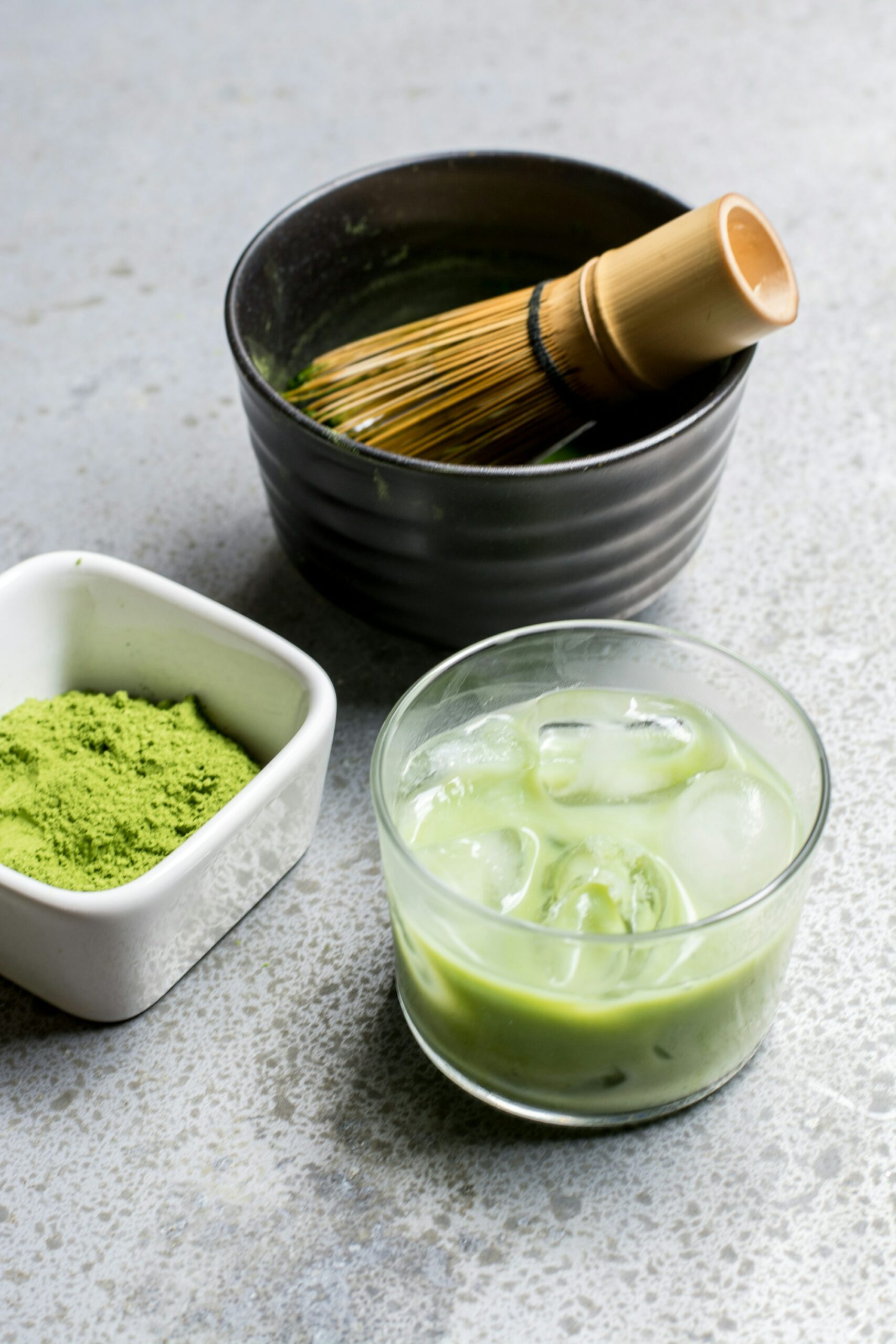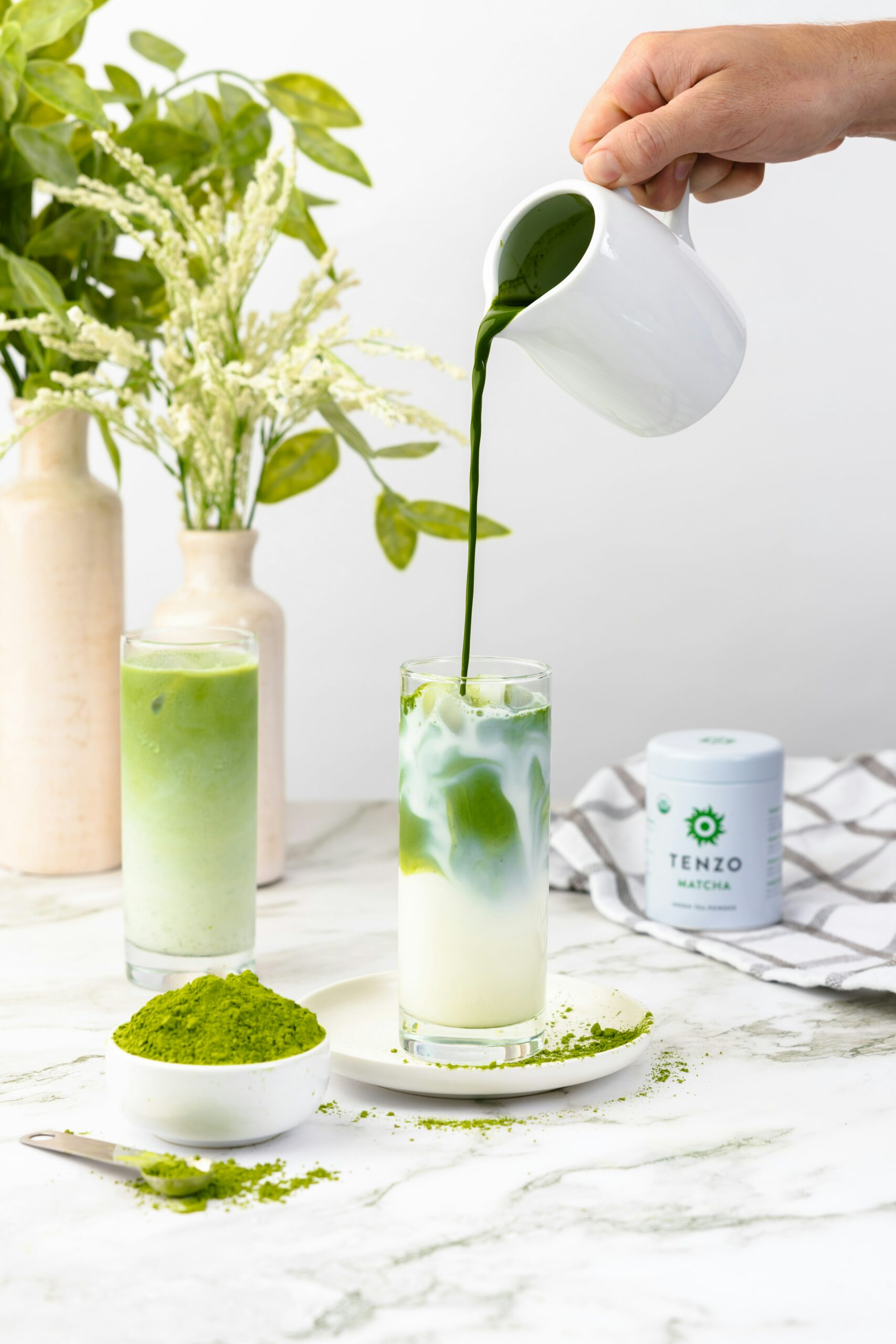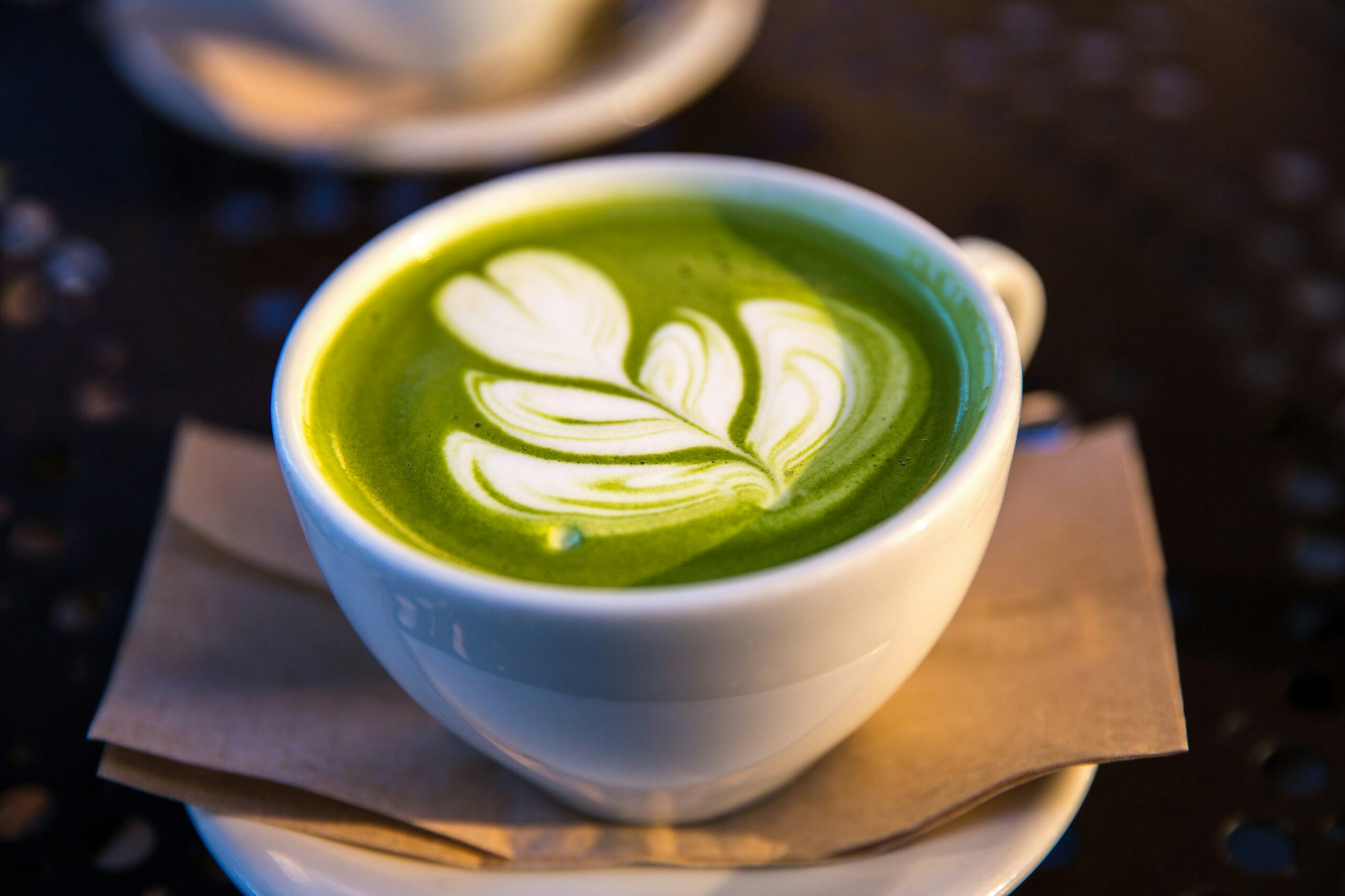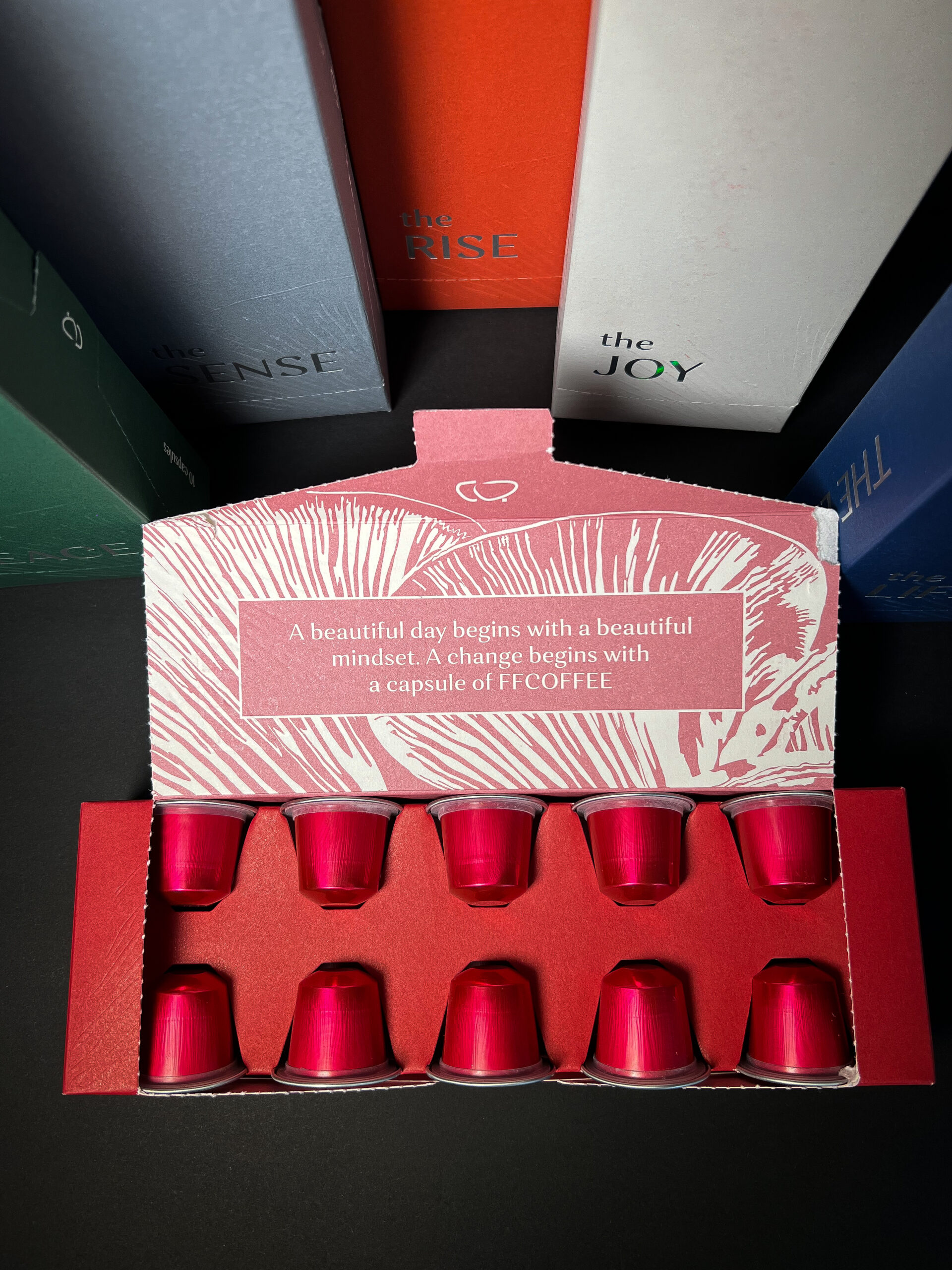As health consciousness rises, many people seek alternatives to traditional coffee. The search for the perfect morning drink has led health enthusiasts and wellness advocates to explore various options that offer more than just a caffeine boost. Among these alternatives, mushroom coffee and matcha have gained significant popularity, each bringing unique health benefits and flavors to the table. Mushroom coffee cup, with its blend of functional mushrooms and coffee, promises a range of benefits from enhanced cognitive function to immune support. Matcha, the finely powdered green tea, is celebrated for its rich antioxidant content and ability to promote calm alertness. This article delves into the world of mushroom coffee vs matcha, examining their health benefits, nutritional content, and more to determine which is the healthier option. Spoiler: the author leans towards mushroom coffee as the superior choice, given its comprehensive health benefits and holistic lifestyle support.
What is Mushroom Coffee?
Mushroom coffee is a blend of regular coffee and functional mushrooms like Chaga, Cordyceps, Lion’s Mane, Tremella, Boletus Edulis, and Chanterelle. The concept of organic mushroom coffee is not entirely new; medicinal mushrooms have been used for centuries in traditional Chinese and Ayurvedic medicine. The blend typically contains mushroom extracts in varying proportions, designed to complement the caffeine content in coffee while offering additional health benefits.
Types of Mushroom Coffee
Mushroom coffee comes in various forms and combinations, catering to different preferences and health needs. Here’s a detailed breakdown:
· By Form:
- Powder: Easy to mix with hot water or milk, convenient for making lattes or adding to smoothies.
- Mushroom Coffee Pods: Compatible with coffee machines, offering convenience and consistency.
- Cold Brew Mushroom Coffee: Perfect for a quick, refreshing beverage, available in both sweetened and unsweetened versions.
- Mushroom Iced Coffee: A popular option for hot days, combining the benefits of mushrooms with the refreshing quality of iced coffee.
· By Mushroom Type:
- Reishi mushroom coffee: Known for its calming properties and ability to support the immune system.
- Chaga mushroom coffee: Rich in antioxidants, it helps combat oxidative stress and inflammation.
- Cordyceps mushroom coffee: Enhances energy and stamina, often used by athletes.
- Lion’s Mane mushroom coffee: Improves cognitive function and may protect against neurological diseases.
- Tremella mushroom coffee: Supports skin health and hydration due to its high polysaccharide content.
- Boletus Edulis mushroom coffee: Known for its rich flavor and potential anti-inflammatory properties.
- Chanterelle mushroom coffee: Packed with vitamins, particularly vitamin D and B vitamins, essential for energy metabolism and immune function.
· By Coffee Type:
- Organic mushroom coffee: Grown without synthetic pesticides or fertilizers, ideal for those concerned about chemicals.
- Decaf mushroom coffee: For those who want to avoid caffeine while still enjoying the taste and benefits of coffee.
- Flavored mushroom coffee: Options like vanilla, mocha, or caramel to enhance the taste of organic mushroom coffee.
Health Benefits of Mushroom Coffee
Mushroom coffee is lauded for its diverse health benefits, backed by scientific research and traditional knowledge. Here’s an in-depth look at the key benefits and mushroom coffee nutrition facts:
1. Immune System Support:
- Reishi and Chaga are particularly effective in boosting the immune system. A study published in the Journal of Ethnopharmacology found that Reishi mushrooms contain polysaccharides that significantly enhance immune function, helping the body fend off infections and diseases.
Various fruits and vegetables
2. Cognitive Enhancement:
- Lion’s Mane is renowned for its neuroprotective benefits. Research in the International Journal of Medicinal Mushrooms indicates that Lion’s Mane can improve cognitive function and memory. Moreover, it may prevent brain aging and the development of neurological conditions like Alzheimer’s disease.

4. Cancer-Fighting Properties:
- Certain compounds in mushrooms like Chaga have been shown to exhibit anti-cancer properties. A review in the journal “Oxidative Medicine and Cellular Longevity” highlights Chaga’s high antioxidant content, which may contribute to its potential to fight cancer. Antioxidants help neutralize free radicals, reducing the risk of cancer and other chronic diseases.

Mushroom coffee nutrition facts
Mushroom coffee is typically low in calories and contains about half the caffeine of regular coffee, averaging around 50 mg per mushroom coffee cup compared to the 95 mg in standard coffee. This lower caffeine content reduces the risk of jitters and energy crashes. Additionally, mushroom coffee is rich in antioxidants and polysaccharides, which contribute to its health benefits.
- Chaga mushroom coffee: High in antioxidants, particularly melanin, which can protect cells from damage and support skin health.
- Cordyceps mushroom coffee: Contains adenosine and cordycepin, which help boost ATP production, enhancing energy levels and physical performance.
- Chanterelles mushroom coffee: Packed with vitamins, especially vitamin D and B vitamins, essential for energy metabolism and immune function.
- Tremella mushroom coffee: Known for its hydrating properties, it contains polysaccharides that support skin health and hydration, making it a popular choice in beauty supplements.
Pros and Cons
Pros:
- Lower caffeine content reduces jitters and the risk of caffeine-related side effects.
- Enhanced focus and cognitive benefits from Lion’s Mane mushroom coffee can improve productivity and mental clarity.
- Immune-boosting properties from Reishi and Chaga can help protect against illnesses.
- Potential anti-cancer effects from Chaga can contribute to long-term health.
- Libido boost reported by some Cordyceps mushroom coffee users, which can improve overall well-being and vitality.
Cons:
- Unique earthy taste may not appeal to everyone. However, some mushroom coffee manufacturers have found solutions through research and development. Brands like FFCOFFEE offer Nespresso mushroom coffee pods that blend coffee beans and mushrooms perfectly to improve the taste, making it more palatable for a wider audience. Fungi Fusion coffee also offers mushroom coffee subscription as mushrooms as natural health supplements need some time to be stored to start making changes to our health. Usually it takes from 20-30 days to start feeling it.
- Generally higher cost compared to regular coffee, with prices ranging from $1.50 to $3.00 per serving. This can be a consideration for those on a tight budget.
Popular Mushroom Coffee Recipes or Your Everyday Dose Mushroom Coffee Ingredients
- Iced Mushroom Coffee. How to make mushroom coffee?: Brew mushroom coffee, add ice, and a splash of almond milk for a refreshing drink that’s perfect for hot weather. For added flavor, consider a dash of vanilla extract or a sprinkle of cinnamon right on the top of your iced mushroom coffee.
- Mushroom Coffee Latte. How to make mushroom coffee?: Mix organic mushroom coffee with steamed milk and a bit of honey for a creamy treat. You can also use plant-based milk alternatives like oat milk or coconut milk for a dairy-free option.
- Cold Brew Mushroom Coffee. How to make mushroom coffee?: Steep organic mushroom coffee in cold water overnight for a smooth and mellow flavor. This method reduces acidity and bitterness, making it easier on the stomach. So when people ask “Is mushroom coffee acidic?”, we can definitely say that cold brew mushroom coffee is not.
Functional Mushrooms as Part of a Holistic Lifestyle
Incorporating functional mushrooms into your diet through mushroom coffee aligns with a holistic lifestyle approach. This approach emphasizes the integration of mind, body, and spirit for overall well-being. Functional mushrooms are adaptogens, meaning they help the body adapt to stress and restore balance. Regular consumption can lead to improved resilience against physical and mental stressors, contributing to a more balanced and healthy life. This is why many health enthusiasts and holistic practitioners advocate for the inclusion of functional mushrooms in daily routines, often as a convenient and enjoyable beverage like mushroom coffee.
What is Matcha?
Matcha is a type of powdered green tea known for its vibrant color and concentrated nutrients. Originating from Japan, matcha is made from shade-grown tea leaves, which are ground into a fine powder. The history of matcha dates back to the Tang Dynasty in China (618–907 AD) but became popular in Japan during the 12th century, thanks to the influence of Zen Buddhist monks.

History and Popularity
The process of making matcha was developed by Japanese monk Eisai, who introduced it to Japan after learning about it during his travels to China. Matcha became a staple in Japanese tea ceremonies, known as “chanoyu,” where its preparation and consumption were ritualized. The tea ceremony is not just about drinking tea but is a meditative practice that involves a series of precise steps and gestures, reflecting Japanese culture’s emphasis on harmony, respect, purity, and tranquility.
In the Western world, matcha’s popularity surged in the 21st century, driven by growing interest in its health benefits and the rise of specialty coffee and tea shops. Social media also played a significant role in its spread, with influencers and health enthusiasts sharing recipes and benefits. Matcha lattes, smoothies, and desserts have become trendy, appealing to health-conscious consumers seeking nutrient-dense alternatives to coffee.
Types of Matcha
- Ceremonial Grade: High-quality matcha used in traditional Japanese tea ceremonies. It is made from the youngest tea leaves and has a delicate, smooth flavor. Ceremonial grade matcha is typically more expensive and is best enjoyed on its own or with water.
- Culinary Grade: Used in cooking and baking, often less expensive than ceremonial grade. Culinary matcha has a stronger flavor, making it suitable for blending with other ingredients in recipes for smoothies, lattes, and baked goods.
- Matcha Blends: Combined with other ingredients like turmeric or ginger for added health benefits. These blends can offer a variety of flavors and additional nutrients, making them popular in health and wellness circles.

Health Benefits of Matcha
- Rich in Antioxidants: Matcha contains catechins, particularly epigallocatechin gallate (EGCG), which has potent cancer-fighting properties. According to research in the American Journal of Clinical Nutrition, matcha can increase the body’s rate of burning calories by 30-40%. These antioxidants also help reduce inflammation and protect cells from damage caused by free radicals.
- Promotes Calm Alertness: Matcha contains L-theanine, an amino acid that promotes relaxation without drowsiness. A study in the journal Nutritional Neuroscience found that L-theanine can enhance alpha brain wave activity, leading to a state of relaxed alertness. This makes matcha an excellent choice for those who want to stay focused and calm throughout the day.
- Supports Metabolism: Matcha can aid in weight loss by boosting metabolism. A study in the International Journal of Obesity demonstrated that matcha consumption can increase fat oxidation during exercise by 17%. This means that matcha not only helps burn calories but also supports the body in using fat as an energy source more efficiently.
Nutrition Content
Matcha is packed with vitamins A, C, and E, as well as minerals like potassium and magnesium. It provides approximately 70 mg of caffeine per serving, offering a moderate boost without the crash associated with coffee. Additionally, matcha is a good source of dietary fiber, enhancing digestive health. The unique combination of nutrients in matcha supports overall health, including immune function, skin health, and cardiovascular health.
Pros and Cons
Pros:
- High in antioxidants, particularly EGCG, which supports overall health and can reduce the risk of chronic diseases.
- Promotes calm alertness due to L-theanine, making it an ideal beverage for maintaining focus and reducing stress.
- Supports metabolism and fat oxidation, aiding in weight management and energy levels.
- Versatile in culinary applications, from traditional tea to modern smoothies and desserts.
Cons:
- Can be more expensive, with ceremonial grade matcha costing up to $2 per gram. This can be a barrier for some consumers, especially those who drink matcha daily.
- Preparation can be time-consuming, requiring specific tools like a bamboo whisk and a matcha bowl. The traditional method of preparing matcha involves whisking the powder with hot water to create a frothy beverage, which can be seen as a ritualistic process but may not be practical for those with a busy lifestyle.
- Be cautious about quality: With matcha’s rise in popularity, many manufacturers have entered the market, and some use lower-quality ingredients, mixing matcha with sugar and artificial flavors, which diminishes its health benefits. Authentic, high-quality matcha is typically produced by Japanese companies. Although it might be more expensive, it is worth the investment for its superior taste and nutritional profile.
Popular Matcha Recipes
- Matcha Latte: Blend matcha powder with milk (dairy or plant-based) and a sweetener of choice. This creamy beverage is a popular alternative to coffee lattes and can be enjoyed hot or iced.
- Matcha Smoothie: Mix matcha with fruits, yogurt, and honey for a nutrient-packed smoothie. This is an excellent way to incorporate more antioxidants and vitamins into your diet.
- Matcha Energy Balls: Combine matcha with nuts, dates, and coconut for a healthy snack. These energy balls are perfect for a quick, on-the-go snack that provides sustained energy throughout the day.

Mushroom coffee vs Matcha. Health Benefits
Both organic mushroom coffee and matcha offer unique health benefits that surpass regular coffee. Mushroom coffee enhances focus, energy, and immune function, while matcha provides antioxidants, promotes calm alertness, and supports metabolism.
Mushroom coffee’s diverse mushroom blends target different health aspects:
- Reishi and Chaga mushroom coffee boost the immune system.
- Lion’s Mane mushroom coffee improves cognitive function and may prevent neurological diseases.
- Cordyceps mushroom coffee enhances energy, stamina, and libido, and may help fight cancer.
Matcha’s benefits stem from its high antioxidant content, particularly EGCG, and the presence of L-theanine, which promotes a calm yet alert state of mind. Additionally, matcha supports metabolism and fat oxidation, aiding in weight management and energy levels.
Mushroom coffee vs Matcha. Nutritional Content
Mushroom coffee nutrition facts. It is low in calories and rich in beneficial compounds like polysaccharides. Matcha is nutrient-dense, offering vitamins, minerals, and antioxidants, with a moderate caffeine content that provides a steady energy boost. Both beverages support overall health but in different ways, depending on the specific mushrooms used in the coffee and the quality of the matcha.
Mushroom coffee vs Matcha. Taste and Preparation
Mushroom coffee has an earthy flavor that might require some getting used to, while matcha has a grassy, slightly sweet taste. Both can be prepared in various ways, from lattes to smoothies, offering versatility in their consumption. Mushroom coffee can be brewed like regular coffee, while matcha requires a specific preparation method to achieve the best flavor and texture. However, some mushroom coffee manufacturers have found solutions through research and development. Brands like FFCOFFEE offer Nespresso mushroom coffee pods that blend coffee beans and mushrooms perfectly to improve the taste, making it more palatable for a wider audience.
Why Organic Mushroom Coffee is Better Than Regular Coffee and Matcha
Regular coffee provides an energy boost but can lead to jitters and crashes. In contrast, mushroom coffee and matcha offer sustained energy, enhanced focus, and additional health benefits without the drawbacks of high caffeine content. Moreover, the rich antioxidant profile in both beverages contributes to overall health and well-being.
Mushroom coffee stands out for its comprehensive health benefits that target multiple aspects of well-being:
- Immune Support: The polysaccharides in mushrooms like Reishi and Chaga strengthen the immune system.
- Cognitive Function: Lion’s Mane mushrooms improve memory, focus, and protect against neurodegenerative diseases.
- Energy and Endurance: Cordyceps mushrooms enhance physical performance and may boost libido.
Combining Mushroom Coffee and Matcha: Matcha Mushroom Coffee
Matcha mushroom coffee might seem unconventional, but it can create a powerhouse beverage that leverages the benefits of both. Matcha mushroom coffee blend can offer enhanced focus, sustained energy, and a significant antioxidant boost.
Is Matcha Mushroom Coffee Good?
The unique flavors of matcha mushroom coffee can complement each other well, especially when combined with a sweetener or milk. This drink can be enjoyed hot or iced, offering versatility in preparation. Experimenting with different ratios and additional ingredients like vanilla or honey can help create a balanced and enjoyable flavor profile for your morning matcha mushroom coffee.

Where to Get Mushroom Coffee Samples
Many mushroom coffee manufacturers offer mushroom coffee samples mushroom coffee subscriptions, allowing you to try different varieties. Look for organic mushroom coffee or mushroom coffee with Cordyceps for specific health benefits. You can also find mushroom coffee pods and mushroom coffee cups for convenience. Some brands to consider include:
- Four Sigmatic: Known for their mixes of different mushrooms and instant preparation in hot water.
- FFCOFFEE: Known for their high-quality mushroom coffee blends. Offers Nespresso-compatible mushroom coffee pods that blend specialty coffee and organic mushrooms for improved taste.
- Rasa: Provides a variety of adaptogenic mushroom coffee blends.
Final Notes
Both mushroom coffee and matcha are excellent alternatives to regular coffee, each offering distinct health benefits and unique flavors. Whether you choose mushroom coffee for its immune-boosting properties or matcha for its antioxidants, integrating these beverages into your routine can enhance your overall well-being.
However, when comparing mushroom coffee vs matcha, mushroom coffee appears to offer a broader range of health benefits, making it a superior choice for those seeking a comprehensive health boost. From immune support to cognitive enhancement and increased energy levels, mushroom coffee mug provides advantages that go beyond the benefits of matcha.
Moreover, the holistic lifestyle benefits of organic mushroom coffee cannot be overstated. As functional mushrooms help the body adapt to stress and restore balance, regular consumption can lead to improved mental clarity, physical resilience, and overall vitality. This makes mushroom coffee not just a beverage, but a key component of a holistic and health-conscious lifestyle.
If you’re curious, try combining them into matcha mushroom coffee as a one drink for a unique and healthful experience. And remember, many mushroom coffee manufacturers offer mushroom coffee samples or even mushroom coffee subscription, so you can find the perfect blend for your taste and health needs. By exploring these alternatives, you can discover new ways to support your health and enjoy a delicious, energizing beverage. Whether you start your day with mushroom coffee or matcha, making these superfoods a part of your routine is a step towards better health and well-being.
About FFCOFFEE
At Fungi Fusion Coffee all is about health, emotions, and overall well-being savoring top rated organic mushroom coffee.
Embark on a journey of discovery with our six distinct and most popular coffee types – the SENSE, the LIFE, the RISE, the FEEL, the PEACE, and the JOY.
But that’s just the beginning; exciting developments lie ahead, including the forthcoming introduction of mushroom drip coffee bags that promise an unparalleled taste experience. And remember, our commitment to excellence extends to infusing our mushroom coffee pods with the finest mushrooms for energy, immune support, libido enhancement, and beyond. Don’t miss out on these transformative offerings.
Choose FFCOFFEE for a path to wellness. Explore our mushroom coffee subscription options on our website, where you can customize the type, duration, and frequency to suit your preferences. Also, subscribe to our newsletter not to miss our coffee blogs – you will definitely love these!
Your feedback is invaluable to us! Whether you share your FFCOFFEE experience in the comments below or tag us on social media – @fungifusioncoffee – your insights play a pivotal role in shaping our offerings. Also, feel free to contact Fungi Fusion Coffee if you have questions!
Together, we strive to deliver the ultimate in mushroom coffee excellence. You will learn more about Fungi Fusion Coffee on a daily basis. So, subscribe and follow us!
Here’s to a future filled with brightness and vitality, all thanks to FFCOFFEE!







